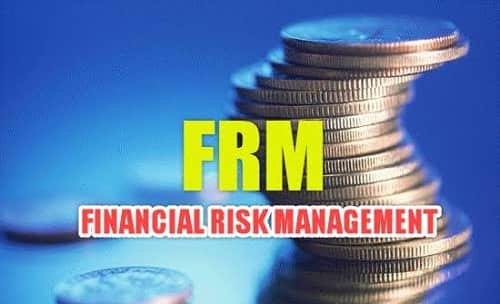The FRM and CFA are sought and well-known career options for those who aspire to work as professionals in the finance and investment sector. These two certification courses offer a wide range of job opportunities to their aspirants. Those who want to become a financial analyst or work in the investment or banking sector can check the FRM certification and CFA charter course. Well, many students are confused about which one is better? Let’s discuss the FRM and CFA in-depth and take a look at their differences.
Difference Between FRM and CFA – About FRM & CFA
What is the FRM course?
The full form of FRM is Financial Risk Manager, a leading certification course that is recognized globally and offered by the Global Association of Risk Professionals. The course acquires necessary skills sets and develops professionals for top firms and financial organizations. It is designed to provide a strong conceptual knowledge of the fundamental risk management concepts. Candidates are introduced to the organization’s risk and market strategies. Although, they are trained for real-world challenges and manage all types of risks.
What is the CFA course?
The CFA or Chartered Financial Analyst is a globally recognized certification course offered by the CFA Institute, USA. It is an ideal option for those students who want to become investment professionals. The main purpose of the CFA is to provide real-world portfolio management skills along with a strong knowledge of advanced investment analysis concepts. Candidates can easily target specific positions in the banking and investment industry after completing this course.
FRM Vs CFA – Organizing Body
The FRM and CFA Organizing body are well-known and have both national and international reputation. Let’s’ have a look at it:
- The organizing body of FRM
The FRM exam is organized by the Global Association of Risk Professional, USA
- The organizing body of CFA
The CFA Institute, USA is the conducting authority for the CFA exam.
FRM Vs CFA – Eligibility Criteria
- Eligibility Criteria for FRM
The application should have 2-year of full-time professional experience as a risk-related designation or profile. Such professionals are eligible for the FRM exam. There is no specific or educational degree required to appear for the FRM exams.
- Eligibility Criteria for CFA
- To appear for the CFA exam, candidates must obtain a bachelor’s degree or equivalent from any recognized university.
- Candidates appearing for the bachelor’s final year exam can also apply for the CFA exam.
- He or she should have at least 4-year work experience as a professional. (The experience does not have to be investment related).
- The total duration for both professional work experience and educational qualifications is at least 4-years. (The part-time experience has not been counted in the overall period).
FRM Vs CFA – Pattern and Syllabus
FRM Exam Pattern
- Exam Level/ Part – The FRM has two parts. Candidates can sit for both parts on a single exam day.
- Exam Frequency – Part 1 of FRM is conducted thrice a year in May, July and November month. Part 2 of FRM is conducted twice a year in May and November.
- Format of FRM – The FRM is a Computer-based exam (for all parts) both Part I and Part II comprises multiple-choice questions (MCQs).
- Passing Rate – According to the previous year FRM results approx. 39% to 53% candidates had passed Part I. In Part II, around 50% to 62% of candidates had secured their seats.
- Study Hours Requirement – The FRM each part requires 200 to 250 hours full-time durations.
- Post Exam Requirements – The candidates need to pass both FRM papers. Apart from educational knowledge, candidates will have to gain at least 2-year full-time work experience as a professional in the field of financial risk management or another relevant field. Although, such professionals maintain a proper membership to become certified FRM.
FRM Exam Syllabus/ Topics
In terms of the syllabus, FRM and CFA have lots of differences. There are some major subjects that you should study during the FRM training. The FRM curriculum involves numerous topics like:
- Quantitative Analysis
- Foundations of Risk Management
- Valuation and Risk Models
- Financial Markets and Products
- Credit Risk Measurements and Management
- Market Risk Measurements and Management
- Operations Risk and Resiliency
- Risk Management and Investment Management
- Liquidity and Treasury Risk Measurement and Management
- Current Issues in Financial Markets.
CFA Exam Pattern
- Exam Level/ Pattern – The CFA has a total of 3 levels. To become a CFA certified professional candidates need to qualify all three levels.
- Exam Frequency – The CFA Level I is conducted 4x a year in the February, May, August and November month. The CFA level II is conducted twice a year in May and August. Level III of CFA is also conducted twice a year in May and November.
- Exam Format – The CFA is a computer-based exam. The CFA level I question paper is based on multiple-choice questions (MCQs). The CFA level II comprises item set questions (Multiple Choice). The CFA level III exam pattern is a combination of Itemset questions and essay questions.
- Pass Rates – As per the expert and previous year clearly shows that around 36% to 43% of aspirants pass level I of CFA. On the other hand, level II is more difficult than Level I and approx. 39% to 47% candidates had passed level II. At last level III was passed by only 46% to 56 % of aspirants.
- Study hours Requirement – Each level requires at least 300 hours duration to study.
- Post Exam Requirements – To become a CFA certified professional, candidates need to qualify for all three levels of the CFA exam. Apart from the conceptual exam, candidates need to gain 4000 hours of work experience. However, he or she should become a regular member of the CFA institute and follow all CFA rules & ethics and have knowledge of CFA professional conduct. After qualifying for the exam, candidates must submit at least 2 to 3 professional references to earn a valid licence.
- CFA Exam Syllabus / Topics
All three level of CFA cover the major following topics:
- Economics
- Corporate Finance
- Ethics and Professional Standards
- Portfolio Management
- Equity and Alternative Investment
- Quantitative Methods
- Financial Reporting and Analysis
- Fixed Income and Derivatives
FRM Vs CFA – Duration of Course
- Duration of FRM
The duration of FRM is 3 years and it may extend up to 4 years on the behalf of candidates performance.
- Duration of CFA
The students are required to qualify the Part II of CFA within 4 years of passing the CFA Part- I.
FRM Vs CFA – Application Fees
- FRM Application Fees – The application fees for FRM Part I and Part II can differ. Let’s have a look at it.
- For Part I – The application fees for the part I is around $ 650 to $ 950
- For Part II – The application fees for part II is approx. $ 350 to $ 650
- CFA Application Fees – The CFA comprises three levels and the fee for all can differ. Let’s have a look at all three level fees:
- For Level I – Fees for CFA level I is around $ 650 to $ 1380
- For Level II – Fees for CFA level II is approx. $ 650 to $ 1380
- For Level III – The CFA level III fees is approx. $ 650 to $ 1380
FRM Vs CFA – Job Roles and Career Scope
FRM Job Roles
The FRM certification has become popular nowadays. That’s why the demand for the business analyst is rapidly growing. Such professionals are trained with better skills and education. They can easily manage the risk efficiency of any firm or organization. By doing this course, candidates will be offered reputed job positions include:
- Head of Operational Risk
- Senior Risk Analyst
- Director
- Investment Risk Management
- Chief Risk Officer
CFA Job Roles
A certified CFA holder plays vital roles in the field of finance. Through the CFA course, the aspirant will become more specialized. On successful completion of the CFA course, candidates can seek jobs in the investment and banking industry. A CFA can work in various position includes:
- Portfolio Manager
- Fund Manager
- Financial Adviser
- Risk Manager
- Accountant
- Consultant
- Hedge Fund Research
- Investment Banking
FRM Vs CFA – Salary Packages
FRM Salary Packages
An FRM certification holder may get higher salary packages from the reputed national or international level. Professionals will get approx. $ 70,000 abroad and In India, they will be offered with INR 500000 per month. The salary may differ from position to position.
CFA Salary Packages
The CFA certification holder will get lucrative salary packages and other benefits from both national and international companies. In India, a CFA holder will get INR 6, 00,000 per month and if you can find jobs out of the country then you will get approx. $ 75,000.
FRM Vs CFA – Difficulty Level
Both certifications are some of the toughest professional courses. The FRM and CFA courses require years of hard work and high-level knowledge of various topics related to finance, investment, banking and business.
Final Words:
The FRM and CFA are two major certification courses which can uplift your knowledge regarding banking, finance and investment. Before pursuing any one course, candidates should know the accurate difference between both of them. The above-mentioned difference points will help you to understand which course is perfect for you.

Rahul Kumar is a passionate educator, writer, and subject matter expert in the field of education and professional development. As an author on CoursesXpert, Rahul Kumar’s articles cover a wide range of topics, from various courses, educational and career guidance.





